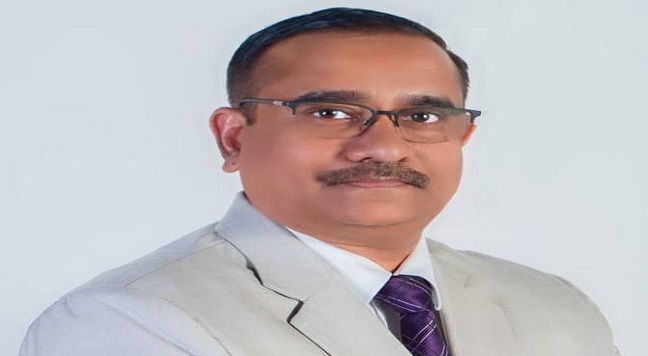General News
Courier Operators Shift Gear, Key into Commerce Delivery

Private Courier operators, were seemingly, taken by surprise when the Nigerian Postal Service (NIPOST) and Konga.com, Nigeria’s largest online marketplace, announced a partnership for the use of NIPOST post offices as pick up locations for Konga orders.
The UNILAG collection centre is the first in a series of collaborations by the two parties to address logistics and delivery issues experienced by eCommerce operators in Nigeria.
This, Dr, Simon Emeje, senior postmaster general of the Federation and head of the Courier Regulatory Department (CRD), told Nigeria CommunicationsWeek, informed their decision to organize series of workshop and networking platforms for both parties to have a handshake, share ideas on e-commerce delivery through the indigenous courier firms.
Emeje said that although Africa’s logistics market opportunity is big and compelling with a potential of $300 annual return, CRD foresees a period most of the courier operators in Nigeria will leverage e-commerce delivery to better their worth.
According to him, the e-commerce logistics include warehousing, order processing and other services before actual delivery, but the unique challenges include infrastructure, talents, internet penetration, payments, and with peculiar to Nigeria, the need for improved regulations.
Speaking to Nigeria CommunicationsWeek in his office on the matter, Mr. Siyanbola Oladapo, president of the Association of Nigeria Courier Operators (ANCO) said that over the years, the industry players have been monitoring trends in both the capital market and e-commerce in Nigeria, and now view the latter as better option in the prevailing circumstances.
Although, Oladapo rule out complete exit of courier operators from the capital market, but he believes that e-commerce is favourably disposed to the members who are looking out for more innovative ways to restore the sub-sector’s lost glory.
There are close to 300 courier operators in Nigeria, majority of them are bent on delivering capital market dispatches like dividend- warrants, annual reports, among others.
However, the ANCO President said, “Of recent, we have been having a lot of seminars organized by ANCO and also the Courier Regulatory Department (CRD) of NIPOST, then, our members are beginning to see the business sense in e-commerce delivery”.
Asked how he received the news of the NIPOST/Konga.com partnership, he said, “Well, it is part of the challenge we still face in on environment where a player also regulates. In actually sense, what NIPOST ought to link Konga to private operators who are decentralized, structured and professionals too.
“It is unlike we are not ready to play major role in the e-commerce delivery, for instance, another e-commerce platform (name undisclosed), approached ANCO and we agreed on our members carrying out their deliveries. If NIPOST, a government agency could take up the large chuck of the market, how can government claim to have the heart to cater for the common interest of the private operators?
“On our part at ANCO, we have been extending our tentacles to other institutions in search of ways to prevent dearth of courier operators in Nigeria”.
E-commerce is one area to look for continued growth and real opportunity in Nigeria.
In 2014 Nigeria recorded over $2 million worth of online transactions per week and close to $1.3 billion monthly.
Nigeria’s e-commerce market is developing rapidly, with an estimated growth rate of 25 percent annually, which spurred CRD to orgnaise seminars in 2014, creating avenues for courier operators to meet e-ecommerce platforms.
Nigerians are notorious for their love of shopping too; for instance, the Euromonitor Nigeria in a 2011 report revealed that Nigerians spend $6.3 billion per year on clothing.
In a recent survey conducted by Philip Consulting 38% of Nigerians prefer to buy products through the internet.
Also, Middle class consumers are the biggest purchasers online.
Earlier this month, Bloomberg, New York based financial newswire service report shows that Nigeria has been ranked among 20 fastest growing economies in the World.
Confirming the report, Kaymu.com.ng, leading online shopping community, attributed the nation’s listing to the upshot of e-commerce.
In an accompanying chart by Bloomberg, Nigeria with an expected growth rate of 4.9% was ranked sixth behind China (7%), the Philippines (6.3%), Kenya (6%), India (5.5%) and Indonesia (5.4%).
Evangeline Wiles, managing director of Kaymu.com, said, “Nigeria’s e-commerce space is the fastest growing in Africa contributing a monthly spends of 1.3bn to the Nigerian retail sector. The role the retail sector plays in driving Nigeria’s economy cannot be overemphasized as a country’s purchasing power is a major driver of the economy”.
General News
Krishnan Exits Africa Data Centre to Embark on Professional Chapter

Dr. Krishnan Ranganath, the hitherto Regional Executive – West Africa at Africa Data Centres (ADC), Africa’s largest network of interconnected, carrier- and cloud-neutral data centre facilities, has moved on from the company after half a decade of record growth.

This was confirmed in a LinkedIn post, where he noted that after more than five years of transformative leadership, he is signing off to embark on a new professional chapter.
Reflecting on his tenure, Dr. Ranganath noted that the journey was defined by resilience and a commitment to building infrastructure designed for the future.
“What started as a mission to navigate the complexities of a new market has evolved into a chapter of immense growth. We didn’t just build data centres; we built the foundation for West Africa’s digital future. I am immensely proud of the culture of operational excellence we’ve fostered and the milestones we have achieved together,” Dr. Ranganath said in a message to our inquiry.
Dr. Ranganath joined ADC during a pivotal era, tasked with establishing the brand as a formidable challenger in the competitive West African market. Under his guidance, the region evolved from a bold experiment into a definitive powerhouse of digital infrastructure, moving from the installation of its first rack to becoming a trusted, well-established partner in the colocation and cloud services space.
During his five-year leadership, Dr. Ranganath managed several key strategic pillars. He led market entry and expansion by navigating complex regulatory and environmental landscapes to turn regional challenges into competitive advantages. He also drove infrastructure excellence by scaling operations from foundational setups into a high-capacity, well-established powerhouse. Finally, he provided cultural leadership by building a high-performance team from the ground up that balanced strategic breakthrough with a collaborative, human-centric work environment.
In the emotionally-laced message, Dr. Ranganath extended his gratitude to the ADC team, describing them as the heartbeat of the company’s success in West Africa. “To my team and colleagues: thank you for the late nights and the strategic breakthroughs that fueled our progress. I leave with great memories and a sharp focus on what’s next.”
While Dr. Ranganath has not yet revealed his next destination, he encouraged his professional network and industry stakeholders to stay tuned for the announcement of his upcoming ventures.
General News
Leo Stan Ekeh at 70; thanks Tinubu, Obasanjo, Nigerians, Global Tech Community

Leo Stan Ekeh, Chairman of Zinox Group and Africa’s foremost digital disruptor, has expressed gratitude to President Bola Ahmed Tinubu, and former President and African statesman, Chief Olusegun Obasanjo, for their goodwill messages and prayers on his birthday.

Ekeh, who turned 70 on Sunday, February 22, also extended gratitude to governors; former governors, including Babatunde Raji Fashola, former governor of Lagos state; National Assembly members; captains of industries, members of the global tech community, some of whom sent delegations to his house aside virtual goodwill messages sent from across the globe; royal fathers and the media.
In a post-birthday prayer and thanksgiving meeting with some members of the ICT media in his Ikoyi residence at the weekend, Ekeh said he was overwhelmed by the deluge of good wishes from Nigerians of all tribes and tongues.
Ekeh reflected on his relationship with President Tinubu over the past decades, describing Tinubu as a trustworthy and loyal friend who does not hesitate to make sacrifices for the good of the people he leads.
“President Tinubu has been my supporter long before I launched Zinox. He has always shown brotherly love,” he recalled.
He mentioned Mr. Sam Amuka, publisher of Vanguard newspapers; Lt. General T.Y Danjuma (retd), Founder, South Atlantic Petroleum; and Pa Obafemi Awolowo’s family as some of the many Nigerians with established companies who “experienced me and trusted me in the early days of my business life, and I didn’t disappoint”.
Recounting how Nigerians celebrated him on his birthday, he said: “In all my years, I have never seen such a show of love from Nigerians via different communications channels, from calls to social media. I was deeply touched by the kindred spirit of Nigerians. It tells me one thing: Nigerians are caring and loving people, and they appreciate quality and value-driven impact.
“I want to use this medium to say ‘thank you’ to those who sent me messages of goodwill, prayers through different communication platforms that I could not immediately acknowledge. I appreciate you all,” he said.
It will be recalled that President Tinubu while celebrating Ekeh on his birthday described him as one of “Nigeria’s pioneering innovators in the information technology sector.”
The President also commended Ekeh for his “commitment to promoting the Nigerian brand and creating opportunities for young Nigerians,” amongst his other achievements in the tech sector.
President Obasanjo, accompanied by his wife, Chief (Mrs.) Bola Obasanjo, who visited Ekeh to pray for him, described Ekeh as a “very kind man and an achiever who inspired many youths at a critical point in Nigeria’s information technology history.” He also prayed for the Zinox Group boss to live for 100 years and beyond.
As a sitting President, Obasanjo honoured Ekeh as an Icon of Hope and a role model for Nigerian youths on October 1st, 2001, and subsequently with the national honour of the Officer of the Federal Republic (OFR).
Others who joined Obasanjo in honouring Ekeh were former Lagos state governor, Babatunde Raji Fashola and his wife, former INEC Chairman, Professor Maurice Iwu and his wife, Chairman of MTN, Dr. Ernest Ndukwe and his wife; Mr. Atedo Peterside, Founder of Stanbic IBTC Bank and his wife; Chairman of Fidelity Bank, Mrs. Amaka Onwughalu and her husband; Managing Director Fidelity Bank, Dr. Nneka Onyeali-Ikpe; Mr. Udoma Udo-Udoma, Chairman Seplat Energy and his wife; Mr. Sam Amuka; Prof Anya O. Anya; Mr. Chris Uwaje, tech policy expert and his wife; Mr. John Momoh, Chairman of Channels Media Group and his wife; Mr and Mrs Walter, CEO of Providus bank, Mr. Roosevelt Ogbonna, group CEO of Access bank, Mrs. Victoria Ajayi, CEO of TVC Communications and her husband; Mrs. Nkeiru Anumudu, CEO of Globe Motors, secondary school mates of Ekeh including Charles Oputa (Charly Boy) who came with his wife; Leo Stan’s elder brother HRM Eze George Ekeh (aka Saint George), the traditional ruler Ishi Ubomiri Autonomous Community in Imo state; representatives of multinationals with whom he has partnered all through the years; among
General News
JAMB Uncovers AI-Driven Fraud Targeting UTME Candidates, Warns Parents

Joint Admissions and Matriculation Board (JAMB) has said it has uncovered criminal syndicates that are deploying artificial intelligence tools to impersonate its officials and defraud candidates preparing for the Unified Tertiary Matriculation Examination (UTME).

Is-haq Oloyede, registrar of the board, disclosed this on Saturday in Abuja, warning that candidates and parents involved in the scheme would face severe consequences.
Mr Oloyede also said three top officials of the board have been found to have collaborated in sabotaging the system and have been recommended for dismissal.
He added that two other officials and a member of staff of Ahmadu Bello University, Zaria, are currently undergoing criminal prosecution for involvement in activities inimical to the integrity of the examination body.
Mr Oloyede said investigations revealed that more than 100 candidates were linked to the scheme, with 83 confirmed to have made payments to the syndicates.
He added that those involved cut across 25 states with three school proprietors in custody for aiding and abetting examination malpractice.
He further said the board had made recommendations to the Minister of Education for the cancellation of the affected registrations.
“What is important for us to emphasise here is that the students themselves and their parents are willing collaborators and cannot be regarded as innocent,” he said.
Mr Oloyede also expressed concern about the involvement of underage candidates, noting that about 38,000 underage candidates have registered for the 2026 UTME.
He said many of the candidates who patronised the syndicate are underaged, who have been pushed by their parents beyond their academic capacity.
While noting that JAMB’s mandate is limited to conducting examinations, he urged parents to refrain from encouraging malpractice.
“Parents must understand that paying for fraud does not secure a child’s future. It destroys it. You are teaching them that cheating is a strategy, that deception is acceptable, and that merit is optional,” he said.
Mr Oloyede rejected suggestions that the board should negotiate with suspects, including some who allegedly fled the country after last year’s examination.
He added that some computer-based test (CBT) centres had already been sanctioned.
He warned that paying for examination fraud or belonging to online groups offering such services would attract sanctions.
“Let it be clearly understood by all Nigerians that paying for examination fraud is a crime. Receiving illegal assistance is a punishable offence. Being a willing member of a WhatsApp group where these fake services are offered will no longer be condoned. Ignorance will not be accepted as a defence,” he said.
Mr Oloyede said the board is working with security agencies to tackle the fraud schemes.
He thanked the Office of the National Security Adviser, the Directorate of State Services, the Nigerian Police Force and the Nigeria Security and Civil Defence Corps for their support.
“As for capacity, we have the capacity to deal with all these issues. If we did not have the capacity, we would not be able to stay ahead of them. As they are planning, we are planning,” he said.
He added that JAMB has strengthened its technical systems, including the ability to detect prohibited devices during examinations.

 E-Financial2 days ago
E-Financial2 days agoIran-Israel-US Conflict and CBN’s FX Gains: A Stress Test for Nigeria’s Monetary Stability

 E-Financial2 days ago
E-Financial2 days agoMutual Benefits Assurance Reaffirms Full Regulatory Compliance, Enhanced Governance

 General News2 days ago
General News2 days agoJAMB Uncovers AI-Driven Fraud Targeting UTME Candidates, Warns Parents

 General News2 days ago
General News2 days agoSERAP Asks FCCPC to Investigate Google, Meta, Others over Alleged Rights Abuses

 News2 days ago
News2 days agoTeamApt, Awabah Partner to Boost Pension Drive for Nigerians

 News2 days ago
News2 days agoFlashChange CEO, Bidemi Oke, Urges Startups to Build Strong Governance Structures Early

 General News2 days ago
General News2 days agoCapelli Institute Commits to Advancing Trichology in Nigeria

 E-Financial2 days ago
E-Financial2 days agoReps Mull Commission to Regulate Fintech Operations



























